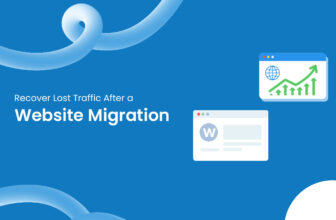
In today’s digital landscape, businesses looking to expand their reach must decide between native and hybrid app development. The choice largely depends on factors like budget, performance requirements, target audience, and long-term scalability. If you are seeking guidance on which approach is best for your business, this blog will provide an in-depth comparison of native and hybrid app development, helping you make an informed decision.
As a web and app development company, selecting the right framework can significantly impact user experience, performance, and overall project success. We will also discuss the role of frontend development services and how a web development company can help you achieve your goals.
What is Native App Development?
Native app development involves building applications specifically for a single platform—iOS or Android—using platform-specific languages and tools. For instance:
- iOS apps are developed using Swift or Objective-C and deployed through Xcode.
- Android apps are developed using Kotlin or Java and deployed through Android Studio.
Advantages of Native App Development
- High Performance – Native apps provide superior speed and efficiency as they are optimized for a particular platform.
- Better User Experience (UX) – Since native apps follow platform-specific UI guidelines, they offer a smoother and more intuitive user experience.
- Access to Full Device Features – Native development allows seamless integration with device functionalities like the camera, GPS, and push notifications.
- Better Security – Native apps benefit from built-in security features, reducing vulnerabilities.
- Scalability – Due to their robust framework, native apps offer better scalability for future expansions.
Disadvantages of Native App Development
- Higher Development Cost – Building separate applications for iOS and Android increases development costs.
- Longer Development Time – Since developers create separate codebases, native apps take longer to develop.
- More Maintenance Effort – Updates and maintenance need to be performed separately for both platforms.
What is Hybrid App Development?
Hybrid app development combines elements of both native and web applications. A single codebase is used to create applications for multiple platforms, which are wrapped in a native shell. Popular frameworks for hybrid app development include:
- React Native
- Flutter
- Ionic
- Xamarin
Advantages of Hybrid App Development
- Faster Development Time – A single codebase can be used for both iOS and Android, reducing development time significantly.
- Lower Cost – Hybrid apps require less financial investment since developers only need to create one app for multiple platforms.
- Easier Maintenance – With one codebase, updates and fixes can be applied simultaneously across all platforms.
- Broader Market Reach – Businesses can target both iOS and Android users with a single application.
Disadvantages of Hybrid App Development
- Compromised Performance – Hybrid apps may not perform as well as native apps, especially for high-performance applications like gaming or AR/VR.
- Limited Access to Native Features – Some device functionalities may not work as seamlessly as in native applications.
- Slower User Interface (UI) Response – Hybrid apps rely on a WebView component, which can lead to a less responsive user experience compared to native apps.
Key Factors to Consider When Choosing Between Native and Hybrid Apps
1. Project Budget
A native app requires a higher budget since it involves separate codebases for different platforms. On the other hand, a hybrid app is a cost-effective option as it reduces development expenses.
2. Performance Requirements
If your application requires high-speed performance, such as in gaming or complex financial transactions, a native app is the better choice. Hybrid apps are more suited for general business applications and content-based apps.
3. Target Audience
Consider your users’ demographics. If your audience predominantly uses iOS or Android, focusing on a single native app may be beneficial. If you aim to reach a wider audience across both platforms, a hybrid app is a practical solution.
4. User Experience (UX)
A seamless UX is crucial for retaining users. Native apps provide an optimized and fluid experience, whereas hybrid apps might experience occasional lags.
5. Development Timeline
If your business needs a quick launch, hybrid apps are ideal due to their shorter development time. Native apps, while more time-consuming, deliver higher quality and better performance.
6. Scalability
If you plan to scale your app in the future with advanced features and updates, native apps offer better scalability compared to hybrid apps.
The Role of a Web and App Development Company
A web and app development company can help businesses choose the right development approach based on specific requirements. They offer expertise in both native and hybrid development, ensuring your application meets business objectives. With the support of frontend development services, businesses can create engaging and high-performing applications tailored to user needs.
Conclusion: Which Should You Choose?
Both native and hybrid app development have their advantages and drawbacks. The choice depends on your business goals, budget, and long-term vision.
- Choose native development if you prioritize performance, security, and user experience.
- Choose hybrid development if you want a cost-effective, cross-platform solution with a faster time-to-market.
Partnering with a web development company ensures that you receive professional guidance tailored to your business needs. Whether you opt for native or hybrid development, the key is to align your app strategy with your overall business goals.
If you’re looking for expert assistance in app development, consider working with a web and app development company that specializes in both native and hybrid solutions. Their frontend development services will ensure your app is visually appealing and user-friendly, giving your business a competitive edge in the digital landscape.







